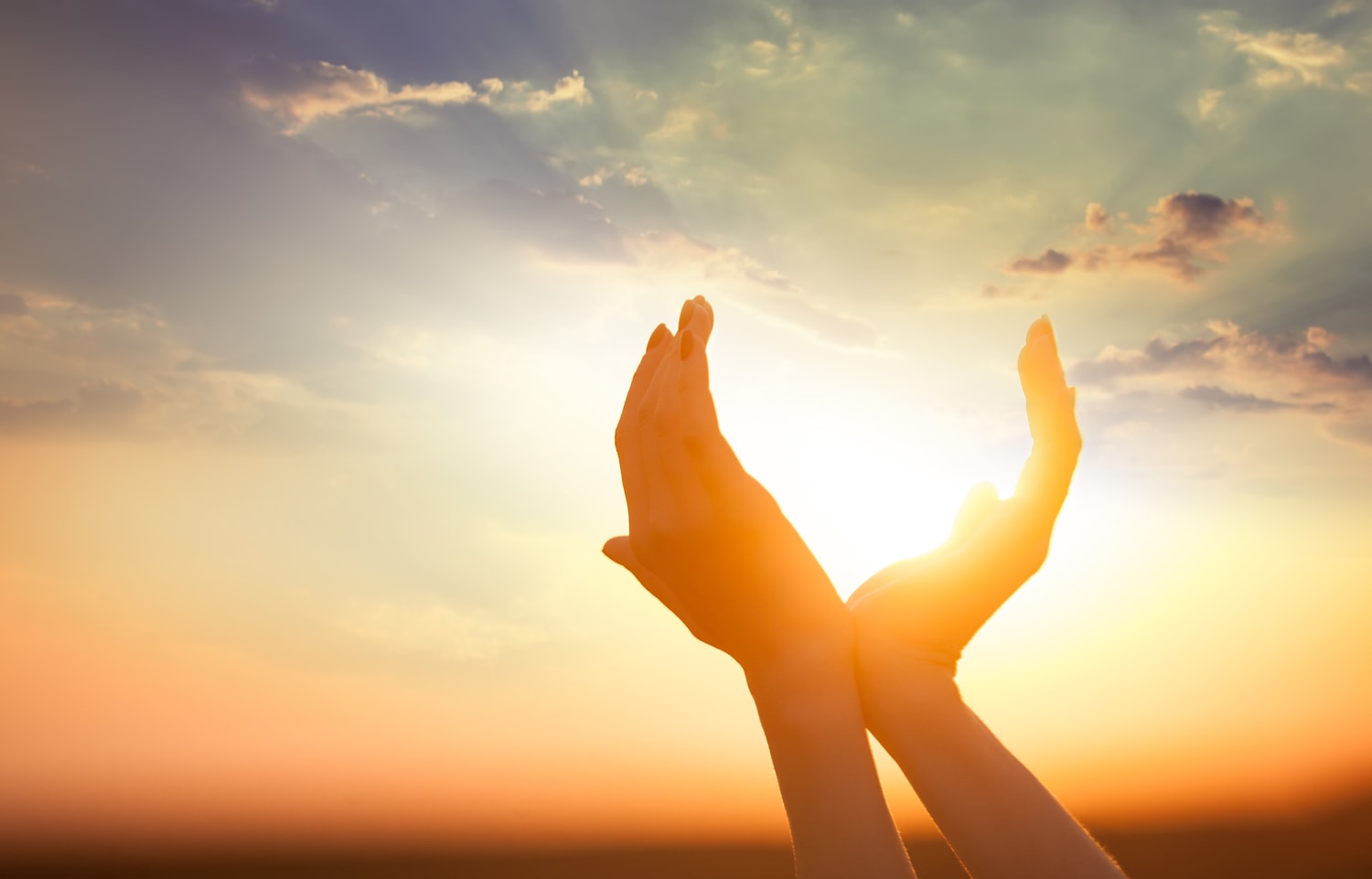What Happens To Our Health When There Is Less Sunlight
You can be in love with summer and dislike autumn and winter. Or, it can be the opposite, and you may be impatiently waiting for the moment when the heat goes down, the colors become softer, and nature becomes more romantic. But whatever season you prefer, the fans of summer and winter are similarly defenseless against the dark time. Indeed, the sunlight is life. And when we have less of it: when the days become shorter, nights longer, and the sun doesn’t show up for several days, our health can be in danger. Here is what happens with your body in the cold and dark time of the year and what you can do to help it.

The Light Heals
We need to spend at least 15 minutes under the sun per day for our body to produce enough of Vitamin D, which determines the normal functioning of many bodily systems. Besides, the morning light which we receive until noon is considered as the most useful. And while we have no problem getting sufficient dosage (for example, on our way to work), it becomes more difficult with each week of autumn. Most of us prefer to get to the job by car or by public transportation, skipping walking and biking in the cold period. Moreover, the closer is the winter, the later the sun goes up, and most of us get out of our homes when it’s still completely dark.
It is the same with the evening light: while we get enough sunlight during the warm and light period of the year when returning from work or during the evening stroll, now it becomes more difficult. As a result, we become more prone to various diseases and even psychological disorders. Here are just a few of the issues which are more likely to happen to us in autumn.
The Decrease in Cognitive Abilities
Seriously, our ability to work and our memory and ability to concentrate are seriously affected in the autumn. The research “Effect of sunlight exposure on cognitive function among depressed and non-depressed participants: a REGARDS cross-sectional study“, participated by more than 17,000 people, has confirmed the direct relationship between the lack of sunlight and deterioration of cognitive abilities. If you find that it gets harder to work with each next autumn day, try to find an opportunity to go outdoor for at least 15 minutes during the day; it should help.
The Increased Need for Sleep
Melatonin, which is the hormone associated with our circadian rhythms, actively develops in the dark, which is why we want to sleep. If your natural circadian rhythms are in order, and you haven’t interfered with them by the habit of spending time with the gadgets or because of stress, then most likely, you will want to get to bed earlier and sleep more in autumn. If it is ok for you and if the longer sleep doesn’t interfere with your daily routines, doctors recommend avoiding fighting with yourself and sleeping as much as you want. If you’re going to get to bed later, then you can switch on brighter light in the evenings, dimming it between an hour and an hour and a half before going to bed. And don’t forget to ditch gadgets.
Lower Activity
In autumn and winter, we need more motivation for exercising, and the reason is not bad weather or cold but the lack of light. The research, “Daylight saving time as a potential public health intervention: an observational study of evening daylight and objectively-measured physical activity among 23,000 volunteers from 9 countries” has proven that the longer is the daylight, the more active we are. But you shouldn’t succumb to laziness as exercises are even more important in winter and in autumn to support our immune system. Moreover, if you start to visit a sauna after the workout — so warm and pleasant — it might become easier.
Higher Risk of Depression
It turns out that autumn depression or autumn spleen is not just a catch-phrase but a serious diagnosis. The research “How Light Deprivation Causes Depression“, which the scientists from the University of Pennsylvania have run on rats, has confirmed that the lack of sunlight can lead to the feeling sad, low and even aggravate depression. After six weeks of staying in the dark, the neurotransmitters which participate in transporting dopamine and serotonin (the emotion hormones) have almost died. So, if you feel that your mood is down and you continue to feel low, frustrated by your life and yourself and in despair, you should think about buying a sunlight desk lamp of the natural spectrum. Also, schedule a visit to a doctor as depression is a serious issue.
Higher Risk of Heart Attack
In the year 2008, while running the research, “Daylight Saving Time: Clock-shifts Affect Risk Of Heart Attack“, a group of scientists from Sweden has discovered that the frequency of heart attacks increase during the first three days after the wintertime shift approximately by five percent. According to the researchers, this can be caused by changing the sleep pattern, which leads to higher production of stress hormones, which, in turn, can induce a heart attack in those who are prone to heart disorders. Thus, if you or your close ones suffer from heart and vascular disorders, you should pay more attention to your health in autumn and after the wintertime shift.
Having Headaches More Often
When it is dark outside all the time, it is not only us who suffer but also our circadian rhythms. When we go to sleep earlier, our night’s rest lasts longer. If we have to get up before the sunrise, the rhythm becomes even more irregular as, according to our body, we wake up at the wrong time day after day. These disorders lead to higher risk of cluster headaches that appear on the one side of the body and can continue for quite a long time. These are very dangerous headaches, which can lead to serious neurotic disorders. If this is your case, you should consult a doctor.
Fight the Darkness

What can we do for our health during the dark time of the day? Here are some simple advice.
Exercise
And the best way to do it is to go outdoor: to the street or at least to a terrace. If you don’t have a chance to leave your premises, make sure that the room is freshly aired. The morning workout is great in any season, but in winter, it will provide you with additional energy and will stimulate your metabolism, which is usually slowing down in autumn and winter.
Sleep Right
Good night rest is especially important when there is not enough sunlight, and when there are no way to get more energy. Make sure you go to bed and wake up at the same time, take gadgets out of the bedroom (there is evidence that most of them negatively influence the quality of sleep) and create relaxation habits, for example, reading or keeping a diary (but only pen and paper, no laptops).
Take a Walk At Lunchtime
A short walk during lunchtime will, first of all, let you get a little sunlight, which is so desperately short in this time of the year, and, secondly, will add more activity in your lifestyle. Just 20 minutes per day, and you achieve a weekly aerobic physical activity goal. Just only benefits!
Hang Thick Curtains
You don’t need them in every room except the bedroom. The darker is the bedroom, the better you sleep, and the easier it is for your body to produce melatonin, which, as a result, gives you better rest. The best thing you can do in the dark period of the year is to sleep good and well to use the short day to the fullest.
Eat Foods Rich in Vitamin D
Despite that the other name of the vitamin is “sunny,” you can get it from foods. This vitamin is found in great quantities in mushrooms, fatty fish, cheese, shrimps and other seafood, as well as in ordinary chicken eggs. Try to eat these products every day, especially for breakfast, and the lack of sunlight will be easier to bear.
Take Vitamin D Supplements
As strange as it may sound, the greatest deficiency in Vitamin D is reported in those countries that have a lot of sunny days per year and where the residents are almost unaware of what is the lack of sunlight. Meanwhile, in countries where the autumn and winter are real dark time, the deficit is smaller. Most likely, the reason is the habit of taking vitamin complexes and supplements. In the Northern European countries, these are taken more often and in larger quantities. This is a good habit, especially if you live at the place where the end of summer means less sunlight and longer nights.
Can You Come to Love Autumn and Winter?
You not only can but should love them since autumn and winter are half of our lives, and we just cannot let us waste this time. Autumn can become a beautiful time of the year, full of romance, peaceful joys, and exciting encounters. The most important thing is to take care of yourself and your close ones and remember that we, humans, are capable of changing the circumstances to our benefit.
What to learn more? Read here:





